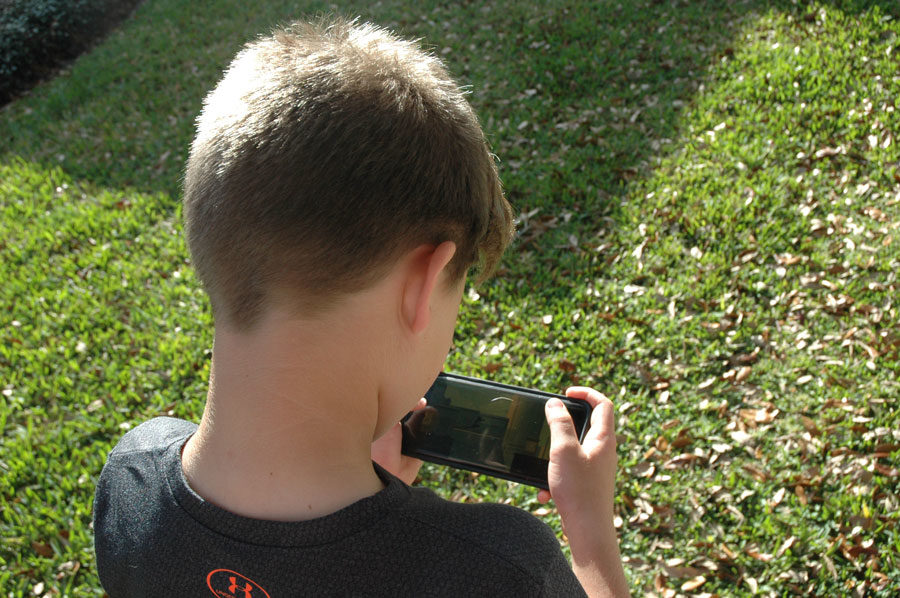CHILDREN RECEIVE SMARTPHONES TOO SOON
Kids are getting phones at younger ages than ever before, prompting some to ask: how young is too young?
March 5, 2018
The last few years have seen an increase in the number of smartphones owned by teens and young children. With new smart phones coming out each year, young adults and children can feel influenced to purchase these new devices. It seems as though every year, the age at which students get their first phones get younger and younger. Some argue that the expanding use of technology within the educational system is partly to blame for America’s children growing up too fast.
“I feel that kids younger than myself owning phones tend to be more antisocial and cocky when they’re around with other people. Freshmen year of high school is in my opinion the best year to get a smartphone, kids in middle school don’t need high tech devices because they don’t have the same responsibilities as a high school student,” said junior Aarin Kim.
“Technology is the future” is a statement often made by many teachers, professionals, and other proponents of growing technology use among children. Although technology is in fact expanding, it should not be imposed on children at the expense of teaching them basic developmental skills. More simply, future generation and their success should not depend on the capability of a certain device.
Indeed, 69 percent of children aged 11-14 own cell phones; furthermore, 31 percent of kids aged 8-10 possess the gadgets as well. The belief that children, especially younger ones, shouldn’t own such expensive devices, is becoming extremely popular.
Sophomore Ryan Rahbari said, “I don’t believe children should have smartphones at a young age as they are easily exposed to incriminating data that can truly change a kid forever, whether they are eight or 18 years old. Also, I think the age of eligibility to obtain a smartphone should be 16 at a minimum. At this age, one is able to decide what is beneficial for them and what is not and in this case, almost all of them fully understand the tribulations and consequences that come with the devices.”
On the other hand, parental controls on smartphones can be used to limit the amount of screen time used by kids. However, this does require constant overseeing and is rather time-consuming to parents. The solution seems to be to eliminate phones for younger kids and give smartphones to teens, who hold more responsibilities, while also enforcing a limit on the usage of the device.
Ultimately, it is the parents’ decision to determine what the right age is for their child to get a smartphone. This often depends on responsibility, trust and reliance within the child, before gifting them an expensive device.























